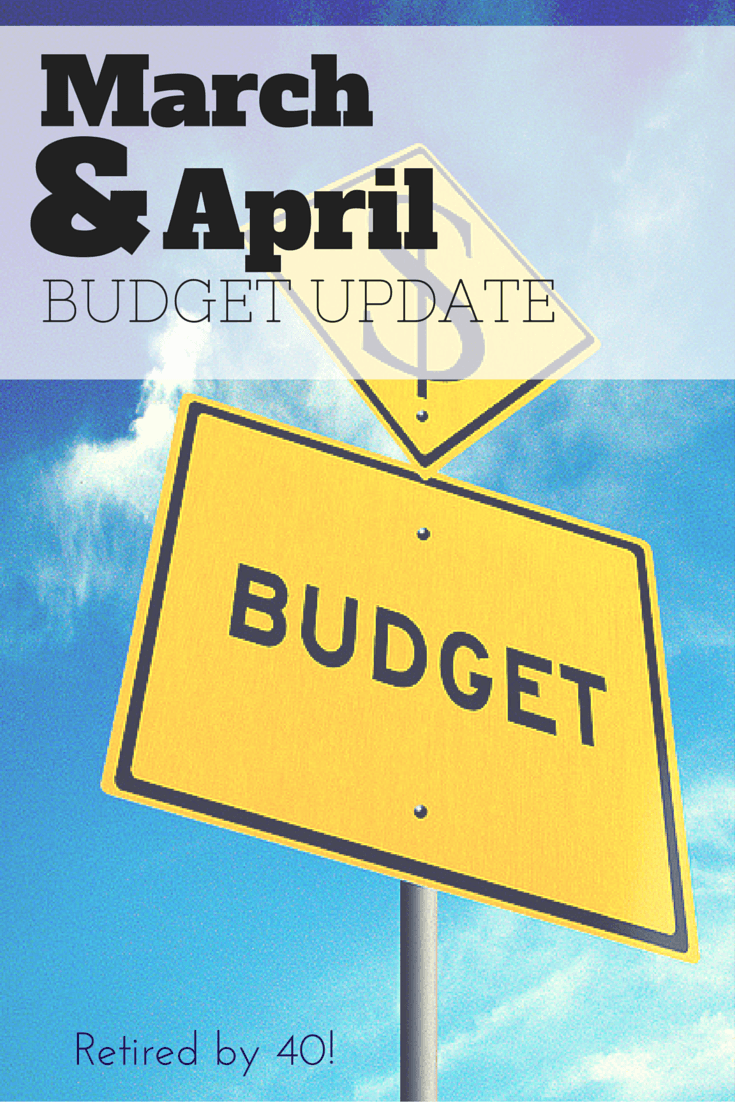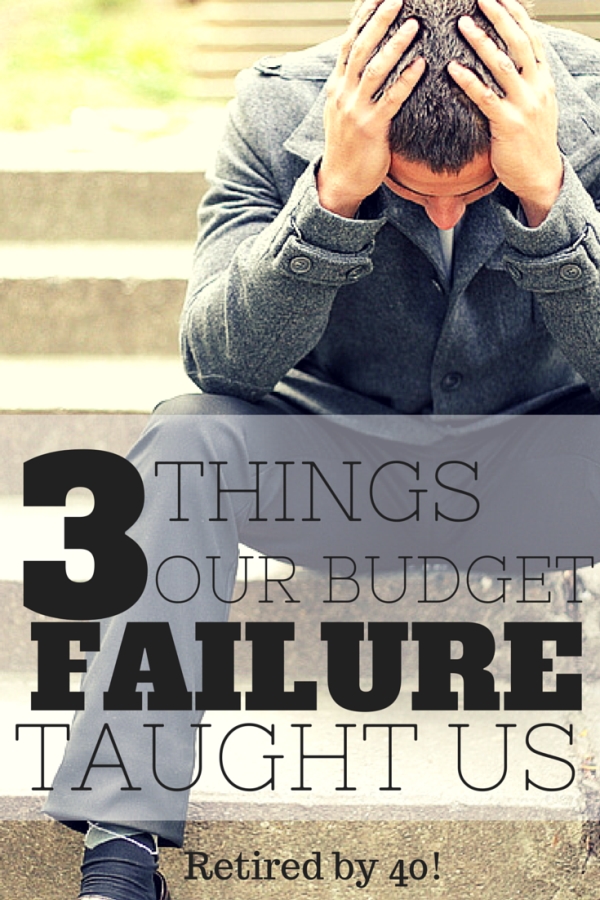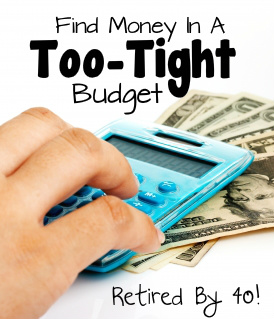Budgeting.
I’ve said it before, and I’ll say it again: Budgeting should considered a four-letter word, like all of those other words that you don’t want your kids to say.
When I say it, people around me work really hard not to groan. There she goes again, talking about budgeting like its the be-all to end-all. Do we have to hear about this again?
Whether you use free online budgeting programs like Personal Capital or Mint.com, software you download to your computer, or even your own method, such as pen and paper, a spreadsheet, or even the cash envelope system, there will probably come a time when your budgeting strategy hits the proverbial wall.
{Don’t have a budget method yet? Try my Marriage & Money Book + Workbook!}
The progression usually looks something like this:
In the beginning, you have no budget, spending plan, and probably a significant debt load.
Then, you have an epiphany, probably the result of reading Dave Ramsey’s Total Money Makeover, a fiancial blogger, or some other financial resources that changes your life.
You change your whole lifestyle to fit within your budget, pay off debt, sock cash away in savings, and start investing. You’re feeling pretty good about yourself at this point. Everything is working according to plan and you’re on top of the world.
But at some point, it stops working, and you may not know why. Budgeting becomes a chore, tracking your expenses, and then the nightmare begins, and you start fighting about money again.
You may not be able to pinpoint when or where your budget stopped working, you just know that it did, and you don’t see yourself every going back.
Take heart, because this change is a good thing.
When your budget stopped working it wasn’t because you were failing, it was because you’ve had risen above your budget.
Let me explain….

When the hubs and I started budgeting, cutting expenses, saving, and so on and so forth, it was like a diet. We were gung-ho, enthusiastic, and had no problem tracking our expenses to the penny. We eagerly communicated about our spending, running ideas past each other, and becoming unafraid to google for how-to videos before hiring home projects out. We were the poster children for paying off debt.
Then our enthusiasm waned, but still we stuck with it, through the fighting, the deprivation, and yes, the non-budgeting period.
But then we had a revelation: what if we had risen above our budget?
What if we’ve come far enough that our budget has sort of been put on autopilot? We’re just coasting along, comfortable in the frugal habits we’ve formed, and when we keep tightening our budget month after month, we made it tighter than was actually possible for us to keep to.
What if it was time for a new budget?
After all, we’ve paid off all of the debt we were concerned with, we destroyed our credit card debt, refinanced at rates that are so small we don’t even care about them, and are consistently living on 55% of our take-home pay.
{How We Paid Off $24,000 of Debt in 2015}
It’s incredible, really, when you consider how far we’ve come. We’ve outgrown our house, our cars, even our hobbies, and moved on to new ones.
What if we’ve outgrown our budget?
We’ve been budgeting for years and it’s gotten us further than we could’ve gotten on our own, but in an effort to find – and utilize – a system that works for us, we decided to try something. And experiment of sorts, during the month of December.
And much to our surprise it worked crazy well.
We ditched our budget.
Well, our OLD budget.
Instead of budgeting, we focused on talking through our finances. Every purchase warranted at least a text message to run it by the other spouse before going through with it. Larger purchases required a phone call or an in-person conversation before making it.
Rather than analyzing every transaction after the fact, we communicated about them before they even happened
And do you know what happened?
We didn’t overspend! In December we spent less than we earned, we were able to make our tax payments as planned, and were actually able to sock some money away into investments accounts!
Could You Ditch Your Budget?
A budget is a powerful tool. It can take your finances from shambles into a productive useful tool. It can make your life more fun and rewarding than you ever dreamed. After all, we weren’t born to just pay bills and die.

But budgeting isn’t without its challenges. It appeals to more data-oriented individuals, and so more creative people may not find any value in budgeting. Budgeting takes patience, hard work, and tons of communication and self-discipline.
Which is why ditching your budget may be a good thing!
Ditching your budget may be right for you if you:
- Love being creative
- Hate numbers
- Are a routine-oriented person
- Embrace the power of habits.
See, when we ditched our budget, we relied on the habits we’d formed over the last 2+ years. We were on autopilot, gliding through our normal financial processes that we had formed as habits.
But those habits didn’t come overnight.
So if you want to ditch your budget, here’s what I suggest:

Start with One Habit
Pick one essential frugal habit, such as planning your meals, to begin with. Plan your meals weekly and cook from that meal plan every day. For each day that you cook from the meal plan, cross that day off on your calendar. After a few days, you’ll notice a chain of X’s on your calendar, and rather than focusing on the fact that they signify the formation of a habit, you’ll want to complete your daily task to continue the chain of X’s, rather than for the task they represent.
Give It More than 21 Days
The experts – whomever they may be – say that it takes 21 days to form a habit, but for some of us, it takes much longer. I’m talking about a couple of months of completing a task every single day in order to make it a habit.
Give yourself at least a month to form the habit, 2 months if you can, and watch your chain of X’s add up as your newly formed habit becomes an integral part of your life.
Then, Choose Another Habit
Once your first habit is solidly formed in your mind, pick another one, such as making your own cleaning products or skipping a casual shopping trip each week. Repeat the steps above to make that frugal habit a part of your life.
This process is not a fast one. It took us more than 2 years to get the point where we’re at now, and we are still FAR from perfect. Some frugal practices we do without even knowing, and others we still have trouble with {I’m look at you, eating out!}
Wash, Rinse, Repeat.
If, after you’ve developed several thrifty habits and have trimmed your budget down by hundreds or even thousands of dollars, you start finding yourself getting frustrated with it, give yourself a month {or a few} without a budget. Rely on your habits & extra communication and see how it goes!
If you start overspending you can always bring the budget back, but if you can stick it out and really focus on communicating about purchases before they even happen, you’ll find that the talking to each other habit becomes just another tool in your frugal arsenal – and it’s an incredibly valuable one!
Have you ever ditched your budget? Did you overspend?

P.S. Share this post on Facebook for an entry into the giveaways!
a Rafflecopter giveaway
This post may contain affiliate links. See my disclosures for more information.











I don’t think you “ditched” a budget. You just started using a system/budget that works much better! I think that is where many people go wrong with their budgets. They start the month with “predictions” of what they will spend and then don’t analyze it until the end of the month. At this point it is too late! The money is already spent! Like you found, it is better to analyze and adjust your budget as your purchases carry out through the month.
Happy to hear you and your husband have found a system that works for you! Best wishes!